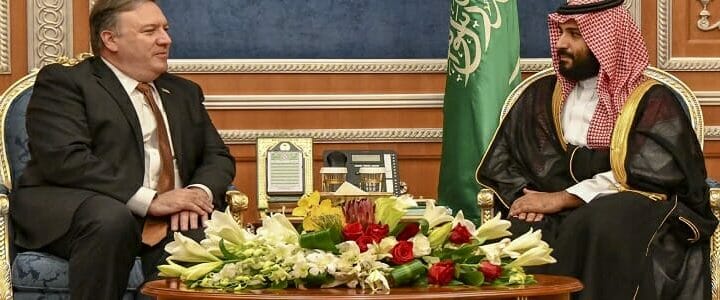I’ve argued before that the concept of a “deep state” that operates independently of whoever lives in the White House, pursuing its own agenda without regard for presidential decision, is largely a fiction concocted by those who don’t understand how the federal bureaucracy works. But it’s a popular fiction. In March, I reported how a poll from Monmouth University revealed “a large bipartisan majority who feel that national policy is being manipulated or directed by a ‘Deep State’ of unelected government officials.”
Leaks like the one that hit the papers over the weekend don’t do much to dissuade people, either.
Late last Friday, The Washington Post reported that the CIA has concluded the Saudi security team responsible for the murder of dissident journalist Jamal Khashoggi in the kingdom’s Istanbul consulate, did so at the direction of Crown Prince Mohammed bin Salman, who prefers to be called MBS.
As leaks go, this one is incredibly detailed. Most disturbing from a security standpoint is the fact that the leakers revealed sources and methods. It is no longer a secret that the more than 100,000 targets of NSA monitoring are not just suspected members of terrorist groups like ISIS and the Taliban, or intelligence operatives of adversarial governments like Russia and China.
We’re listening in on on our supposed allies, too.
The anonymous CIA sources assert that the Saudi ambassador the the U.S., MBS’s brother, Prince Khalid bin Salman, called Khashoggi to persuade him to visit the consulate. He did so, the leaker (or leakers) suggested, at MBS’s direction. Prince Khalid strenuously denied these accusations, and accused the Post of not running the embassy’s full denial, in which they state the ambassador met Khashoggi only once, in September 2017, and texted with him until late October 2017. The embassy says that Khalid never spoke to Khashoggi on the phone.
Other anonymous officials had earlier revealed that an alleged member of the hit team, Maher Mutreb, called MBS aide Saud al-Qahtani to tell him to “tell your boss” that the deed was done. The intercept was originally attributed to Turkish intelligence, but one now wonders if this wasn’t the work of the NSA, as well.
Given the revelations in the leak, it’s easy to see how the CIA reached its conclusion. What’s not so easy to understand is why the leakers would undermine the administration’s policies towards Saudi Arabia.
While this shouldn’t come as a shock, it’s not a good look for the CIA to be telling the press that it has been listening to the most important ally the country has in the Middle East, and directly implicating the heir to the throne in the murder of a prominent opponent of his government. U.S. foreign policy in the Middle East, and Iranian sanctions in particular, cannot work without Saudi Arabia’s participation.
Realpolitik, political realism, must rule U.S. foreign policy. It is easy for those with no responsibility for outcomes to pontificate how the U.S. should distance itself from Saudi Arabia, or work to derail MBS’s ascension to the throne. But decision makers have to weigh the implications of their policy choices, and the CIA’s information is only one part of the equation.
The leakers in Langley might have assuaged their consciences by revealing what the U.S. intelligence community knows about Saudi culpability in Khashoggi’s murder. But their ability to sleep at night comes with a steep price. It’s a price I’m not convinced is worth paying.




